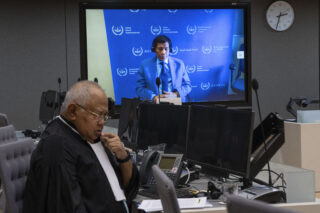The Department of Agriculture’s (DA) P44-billion solar-powered irrigation system (SPIS) project has obtained the approval of an interagency group created to study the project.
Considered as the agency’s flagship program, Agriculture Secretary Emmanuel Piñol said the SPIS would have the capacity to irrigate 500,000 hectares of farmlands all over the country, and could also prepare the country for the next occurrence of El Niño.
Piñol shared on his Facebook page that the interagency group, composed of representatives from the DA, the National Irrigation Administration (NIA), the Department of Finance, the National Economic and Development Authority (Neda), the Department of Budget and Management and the Presidential Management, had endorsed the proposal to the Neda Investment Coordination Committee (ICC).
The project, which would see the construction of 6,200 units of SPIS, would involve an Israeli company called the LR Group, which had expressed interest in financing the whole program through a loan payable in 10 years.
Since 2017, the agency has planned to put up solar power systems in areas across the country that don’t have irrigation systems. These irrigation systems have a capacity to pump from 400 to 1,000 gallons of water a day for up to 150 ha.
Piñol said the additional funding would also help the agency hit its target of increasing the country’s rice self-sufficiency rate to 97 percent. However, the system is not limited to helping the rice industry alone, but could also be used in cultivating corn and high-value crops.
“Under the proposal, LR will be working with the Israeli and Philippine government and other sources of possible financing for the project … If we have this scheme, our irrigation projects may be completed in two years. Our need is immediate and we’re threshing out details as we go along,” Piñol earlier said in a separate interview.
To jumpstart the program, the interagency group has recommended that the DA and its related bureaus conduct a planning workshop with the NIA to identify the country’s irrigable areas that could be utilized for food production.
Piñol said the group would meet again after the Holy Week to draft a plan that would complement the existing programs under the NIA. This would be presented to Neda for review and approval of its investment committee.
The agencies are aiming to have the proposal approved in time for the next hearing budget to ensure its inclusion in DA’s funds for 2020.



